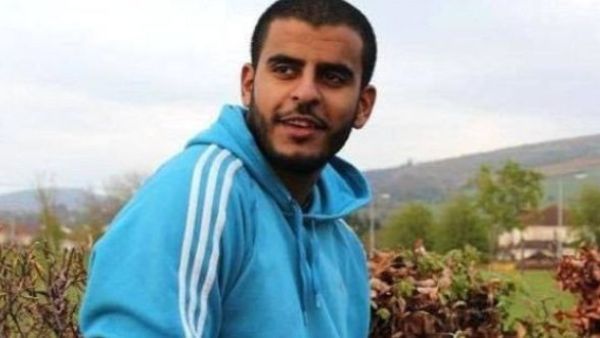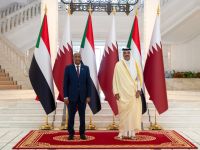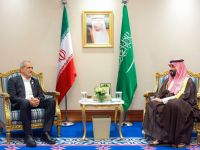- Irish teenager Ibrahim Halawa has been released after spending four years behind bars in Egypt
- The youngster was arrested and tortured after he and his sisters took shelter in a Cairo mosque during pro-democracy clashes in 2013
- The Irish Prime Minister Leo Varadkar discussed Halawa's case with Egyptian president Abdel Fattah El Sisi in the weeks before yesterday's hearing
- Halawa was acquitted along with his sisters and an Egyptian-American while over 400 other detainees in the same trial were sentenced to up to 25 years
Irish teenager Ibrahim Halawa was yesterday finally acquitted of all charges related to a 2013 protest case in Egypt and is now set to be freed, ending a four-year fight for justice from inside an Egyptian prison cell.
Halawa was just 17 when he was arrested alongside 419 defendants accused of taking part in opposition protests against the Egyptian regime.
Halawa and his sisters had traveled to Egypt, the birthplace of their parents, as they often did to stay with their extended family during the summer holidays.
In 2013, the spirit of revolution was still alive in Cairo. The Egyptian army organized a coup against the country’s first democratically elected president, Mohamed Morsi following weeks of protests against alleged incompetence during his leadership.
He was originally arrested alongside his sisters, Fatima, Somaia and Omaima when the Egyptian military stormed a mosque where they were taking refuge during clashes between supporters of ousted President Mohamed Morsi and the security forces.
His sisters were released on bail and returned to Ireland but Ibrahim’s pain was only just beginning.
Halawa’s family campaigned tirelessly for his release but it fell on deaf ears.
While the Irish government provided assistance in the case, the country’s leaders insisted that they would have to wait until the trial had concluded before taking further action.
Sadly, as is often the case within the Egyptian Judicial system, the trial was delayed more than 15 times over four years. No clear reasons were given for the delays but many viewed it as a tactic designed to keep prisoners in custody for the longest possible amount of time.
With no valuable trade deals in the pipeline between Ireland and Egypt, the government’s efforts were of little use in Halawa’s battle for justice.
Many in Ireland questioned whether the government would’ve treated the case differently had Ibrahim’s name been Sean or Jack and his ethnicity been caucasian. Media coverage of his case was mainly left to the state broadcaster and the broadsheets. As time marched on, the popular press increasingly gave less and less coverage to the Halawa story.
The Irish public generally fell into two camps, those who wanted an Irish citizen to be freed from the gulags of a military dictatorship and those who questioned why Halawa had traveled to Egypt to become involved in the affairs of another country.
While this continued, Ibrahim remained in prison in Cairo where he was tortured repeatedly by the brutal Egyptian regime. Halawa suffered ill health in prison and was refused treatment for a gunshot wound sustained during his arrest.
One fact, which was rarely touched upon in either the Irish or Egyptian media was the government's real reasoning for keeping Halawa behind bars.
After all, the Cairo regime had previously show leniency to Al Jazeera journalist Peter Greste, a former cellmate of Halawa, had been released and deported to his homeland in Australia months earlier.
Halawa’s father, Sheikh Hussein Halawa is an Imam at a Dublin Mosque and is highly regarded within Irish society.
The Egyptian regime claimed that the family are supporters of the Muslim Brotherhood. It is a claim that they deny and the youngsters insist that they while they did peacefully protest against the ouster of Egypt’s first democratically elected president, Mohamed Morsi, that they were not politically active and were taking shelter in the mosque from the violence which was taking place outside.
Their pleas fell on deaf ears and Halawa remained in prison long enough to write several heartbreaking letters detailing the brutal conditions inside. In the week’s before yesterday’s hearing, newly elected Irish Prime Minister Leo Varadkar took part in a 20-minute phone conversation with Egyptian President Abdel Fattah El Sisi about Ibrahim’s case.
It was a rare direct confrontation from an Irish administration which had previously mostly communicated with Egypt through diplomatic channels. President Sisi insisted throughout the case that he could not interfere with judicial cases.
However, on Monday, September 18 2017 it has announced that Halawa, his sisters, Fatima, Somaia, and Omaima had been found innocent of all charges alongside another Egyptian-American defendant.
Halawa cried tears of joy as his ordeal was finally over. For the media in Ireland, he was now front page news. But most of all for his family has was coming home. Halawa is now expected to released and flown home to Ireland within a week.
Sadly, more than 400 Egyptian defendants in the case were handed sentences of between five and 25 years in prison, with the same lack of evidence, the only difference is they have no government to fight for them and they will never make front page news.







